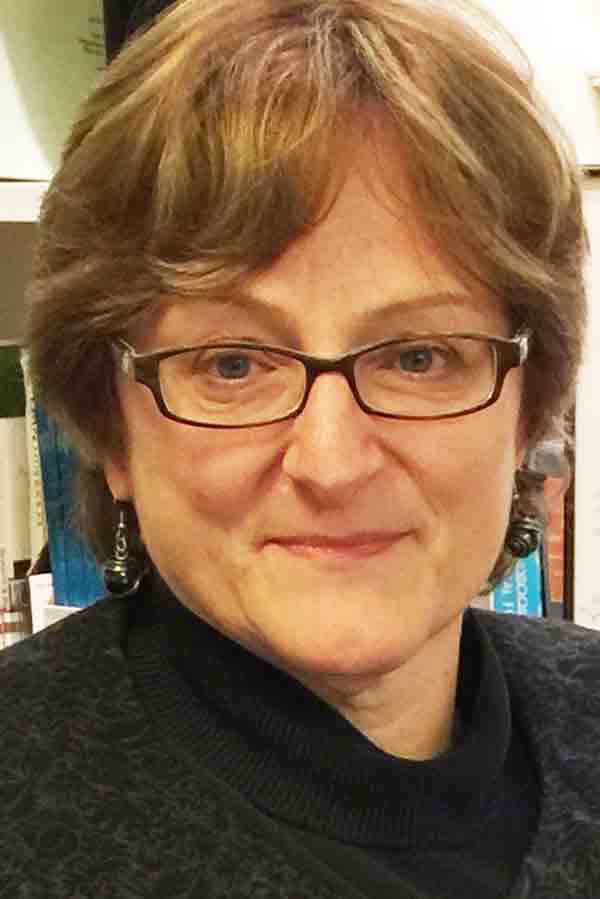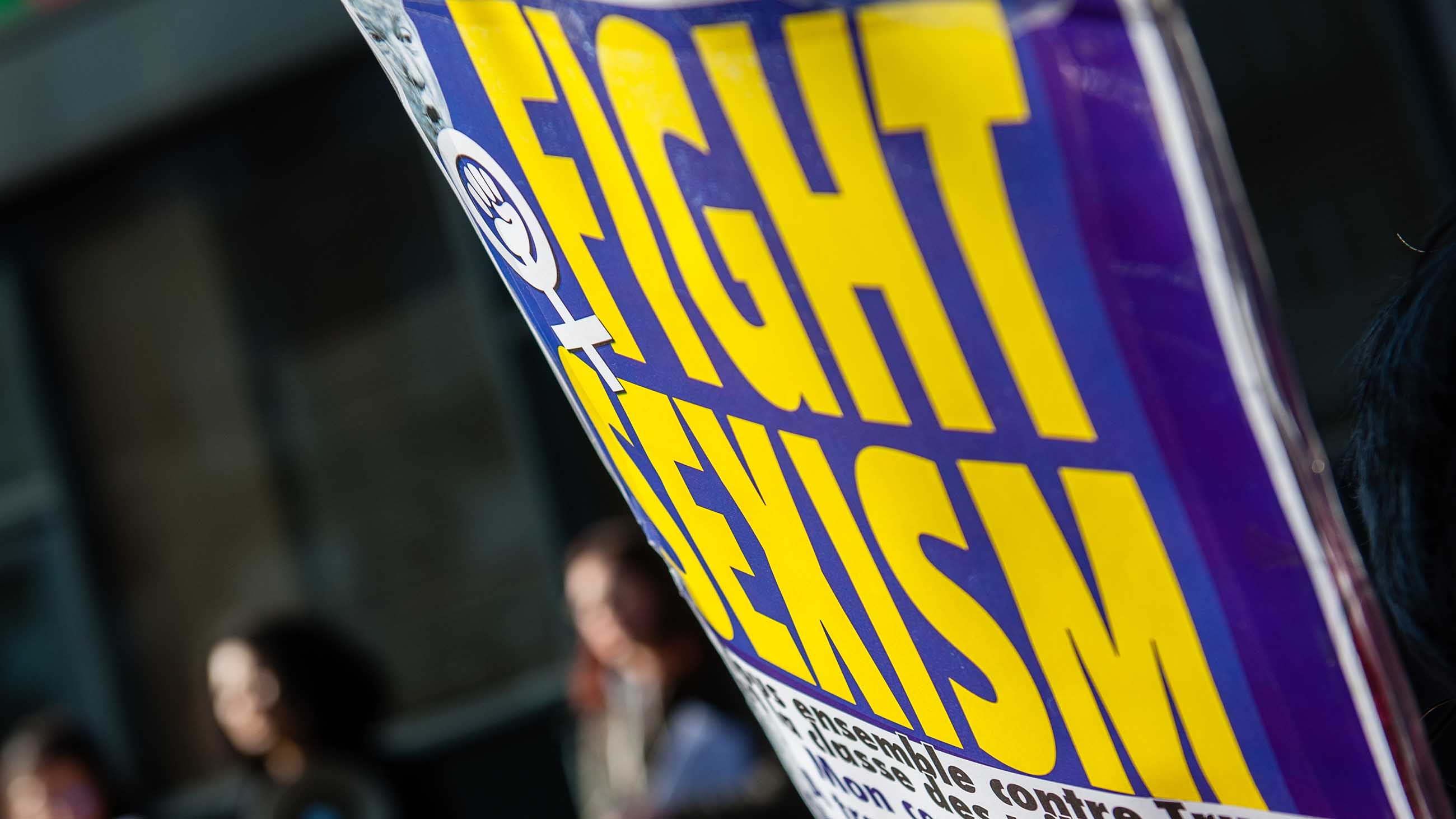Fighting Sexism in Science: Five Questions for Meg Urry
It is “fundamental,” the Baltimore Charter for Women in Astronomy stated in their 1992 charter, “that women and men are equally capable of doing excellent science.”
They were incendiary words at the time, and they anticipated a movement still unfolding a quarter of a century later.

“We need strong, clear rules and clear processes for when rules are violated.” Meg Urry in her office at Yale.
Visual: Yale University
One of the chief authors was Meg Urry, then a young researcher at the Space Telescope Science Institute. As she rose through the profession — as the first woman to achieve tenure in Yale’s physics department, and now director of the Yale Center for Astronomy and Astrophysics (her specialty is supermassive black holes) — Urry remained at the forefront of the battle against sexual harassment and sexual inequality in science.
As president of the American Astronomical Society, she was a leading voice in the outcry that followed the harassment case against the celebrity astronomer Geoffrey Marcy. For this installment of the Undark Five, I spoke with her about the Marcy case, the #MeToo movement, and what remains to be done about the inequalities she’s been fighting. Our conversations have been edited and condensed for space and clarity.
UNDARK — Have you been astonished by the impact of #MeToo in the sciences?
MEG URRY — I guess I have. After so many years of people not paying attention to sexual harassment, to suddenly see things happen, that’s been surprising!
Let me be more specific. When, in 2015, the Geoffrey Marcy story broke in Buzzfeed, I’m glad it was out in the open and we could talk about it. But I didn’t really think anything would change because nothing had changed for such a long time.
With Marcy, as I understand it from what I’ve read, his university had apparently made a decision about him that they didn’t announce; I think because the women who made the Title IX complaints about him were feeling that nothing was happening, they spoke out.
And you know, I was just conditioned by my history in the field that I didn’t really expect things to change. So, I was very pleasantly surprised to see men stand up and say, “This is unacceptable.” A young man in the same field as Geoff Marcy told me that he’d called Marcy and told him he should think about retiring. It blew my mind that a younger colleague would do that.
I hope it lasts. When Anita Hill happened in 1991, didn’t we all think that was the beginning of the end? I did! I thought, “Now, it’s going to stop and people are going to behave better.”
UD — Why is sexual harassment an especially important issue for the scientific community?
MU — Because science is not a religion. It’s not a set of beliefs that people choose to adopt. Science is people trying to understand the laws of nature. To do that, we need everyone. But till now, the talents of women have been underutilized.
Part of our role as researchers is to train students to become the next generation of scientists. You cannot train students if you’re harassing them! So if people can’t not harass, they shouldn’t be professors and they shouldn’t be funded by our federal agencies.
I am very encouraged by a memo recently sent out by the National Science Foundation. In essence, and I’m paraphrasing, it said that “we need to be notified when a grantee has been found to have committed sexual misconduct.”
When the NSF did that, they essentially put harassment on the same footing as other kinds of research misconduct. Before, only things like plagiarism or faking data needed to be reported.
It’s a big step. For all the years I have been in science, I have heard many people, mostly men, hypothesize about why women are not around. “They are not smart enough!” “They aren’t good enough at math.” “They’d rather have babies.” But none of those “reasons” acknowledge that many women are driven away by sexual harassment.
UD — Is sexual harassment worse in science than elsewhere in society?
MU — Science has a special problem because we operate by an apprentice system. If a student doesn’t do well with their adviser, they’ll have trouble getting a position after graduation. Your adviser is supposed to be your champion, and if they are not, your career is dead in the water.
The other thing is that for faculty, the background is changing.
I mean, 30 years ago, it was perfectly acceptable — not in my mind, but in many people’s — to date your graduate students. But now we’re living in a different time and we’re recognizing that these behaviors have a strong effect. We’re realizing that it’s not right for women to have to travel through their apprenticeships navigating the tricky waters of learning and, at the same time, wondering, “Is my professor hitting on me?”
Now, in fairness, it’s not always men hitting on women. But that’s the overwhelming majority of the cases we hear about. The dominant mode is senior men hitting on much junior women.
UD — What needs to change?
MU — We have to reorient our thinking and we need strong, clear rules and clear processes for when rules are violated. At my university, there’s a policy that says no professor can date an undergraduate. I think this is necessary. Some schools don’t even have that.
At the same time, there are people who think, “Well, what if the young woman wants that relationship? Maybe it’s OK, then?” There’s no consensus in the academic community. So we need to have more conversations about what should be the norm and what is right.
Beyond that, the institutions need to charge their focus from avoiding lawsuits to doing the right thing. Right now, the role of a university’s general counsel’s office is often to protect the institution from a lawsuit. They are asking, “Is the professor we fire going to sue us?” Instead, universities need to think more about the students who’ve been failed by the institution.
Along those lines, many of us need to change our own attitudes towards colleagues. When a famous scientist does something bad and is finally fired, some have focused on, “Oh, no. What a loss to science!” We should refocus on the greater harm to science from the loss of the women who were driven out by that scientist.
Finally, we need to recruit more women into male-dominated fields. A lot will change when women are present in greater numbers.
UD — There are people who fear that #MeToo will lead to a kind of sexual McCarthyism. Are you worried?
MU — I think whenever you have progress, you’re going to have a backlash.
But I think there are also often elements of the backlash that are important to pay attention to. For instance, I don’t believe that all sins are equal. With this type of behavior, there’s a huge spectrum that goes from telling a dirty joke to actual assault. I don’t think the sanctions should be uniform. I’m one of those people who feels that if we don’t look carefully at the whole picture, we will not necessarily be doing the right thing.
The fact is this is requiring a huge change in some people’s attitudes in a pretty short period of time. It’s really hard to change the culture in a short time.
On the other hand, we need to get rid of serial harassers. Some of them should be fired. A number have been allowed to retire. I’m OK with that. Get them out of the university. The important thing is make sure they are not in a position where they can exploit young people.
So, have women been treated fairly for the past millennia? No! Is misogyny alive and well? Yes! But overcorrecting will hurt everybody.
Claudia Dreifus writes the “Conversation With…” feature for the science section of The New York Times. An honorary member of the science honor society Sigma Xi, she teaches science communication to graduate students at Columbia University’s Earth Institute.











Comments are automatically closed one year after article publication. Archived comments are below.
Thank you for sharing your experience Pat. These are the types of specific situations that people need to be aware of – there is currently a backlash against feminism in many parts of the WWW, with far too many people talking in general terms. We need to ask them to consider how they would feel if they, or their womenfolk experienced dilemmas like yours – especially in the case of non criminal harassment situations, which far outnumber cases of serious sexual assault.
I worked for a major paper company for 23 years. I started as a technician while attending college and left the company as a senior research scientist. To understand when I started at the research center there was only one women’s restroom in the five story building on the second floor where all the secretaries were located. While academia has many problems the working scientists in industry have the same issues. These are still very prevalent.
I retired three years ago and am very happy to see the changes start to happen especially for my grand daughters. When I was in my mid forties I felt I had to leave my position as scientist due to the pressure of my boss who kept pressuring me for a relationship. He was married. When my ignoring him worked he found another women who wanted my position and then really made my life unbearable. She was willing to play his game.
I realize I am not alone although many men seem to think that this is just a ‘women thing”. The culture as a whole is to blame and very difficult to change. This is still a very patriarchal society.